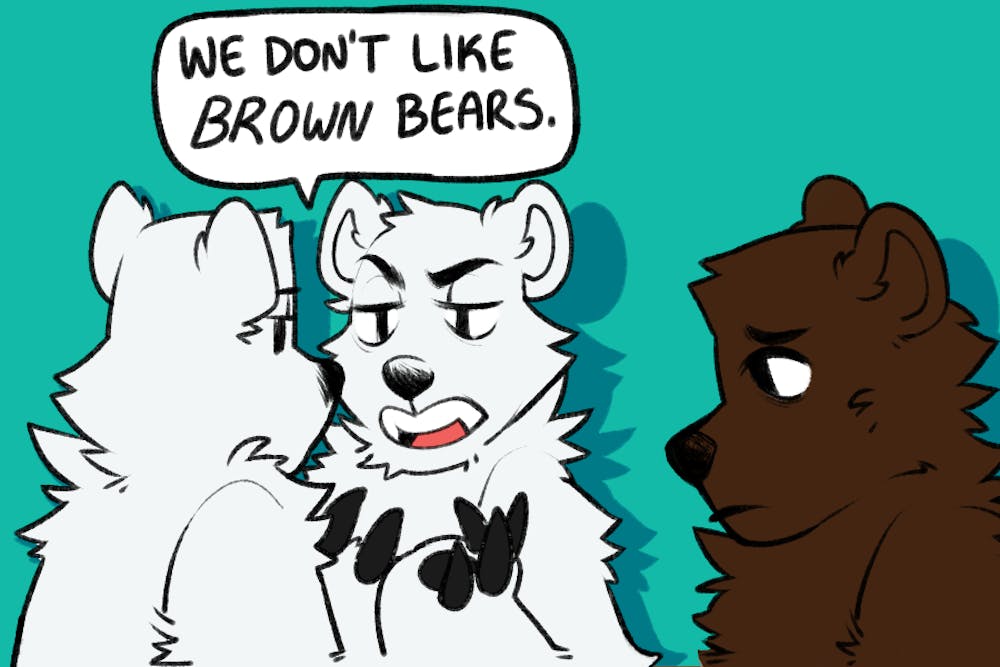Recent attacks on millennials and our opinions on freedom of speech are nothing but hot air. The only generational conflict here is over the definition of obscenity.
Recent surveys released by Gallup suggest a generational shift, with older Americans concerned about the erosion of fundamental American liberties protected by the Bill of Rights. While the First Amendment is easily accessible to all Americans, younger and older Americans have come to divergent views on what exactly the document protects.
This represents a change in American values. After all, many older Americans generally share views like those of President Donald Trump, who frequently decries politically correct culture.
The charge often comes alongside the idea that they can no longer express themselves without the fear of offending someone, which now can come with a high social cost in an age of Internet shaming.
Those who do speak out against political correctness, however, generally embody the ideas of Tomi Lahren, feeling a need to decry the “special snowflake” mentality of a monolithic conception of today’s college students.
Meanwhile, Senator Jeff Sessions, likely to become US Attorney General unless the Senate takes dramatic action, is taking another approach to protecting freedom of expression: reviving obscenity enforcement groups within the Department of Justice.
I’d like to thank the senator for reminding us that the United States had a porn police up until the Obama administration shut it down, but also for bringing up the concept of obscenity again, because it’s a conversation we need to have. Not because millennials curse too much, but because it’s time we embrace using the term.
That’s because our definition of obscenity is too narrow. Obscenity doesn’t refer to a few choice words. Obscenity refers to constitutionally unprotected speech.
Per the Supreme Court decision in Jacobellis v. Ohio, obscenity is subjective, with Justice Potter Stewart legendarily stating, “I know it when I see it” in his concurring opinion.
Miller v. California established the eponymous Miller test, requiring obscenity to be sexual in nature, previous decisions demonstrate that obscenity is largely a social definition, and thus one which can change based on cultural context.
While Senator Sessions wants to use obscenity charges to come after students’ porn, we snowflakes should take advantage of the coming conversation and use it to talk about how we understand obscenity.
For me, “I know it when I see” discrimination based on gender, national origin, sexual identity, gender identity, ability, religion or skin color. “I know it when I see” attacks on people’s ability to self-determine. “I know it when I see” the university allowing hate preachers to continue to voice their comments on sexual assault and Islam as well as espouse their weak theology.
That, to me, is damn obscene. And while Senator Sessions might seek to roll back my ability to publish the previous sentence, under this definition of obscenity, we should push for him to rethink his previous statements and actions against the gay community and persons of color.
This shouldn’t be a radical statement. It’s a discussion of common sense. ASU Young Democrats' Vice President Jesse Avalos points out that a lot of the feelings of censorship in our generation have to do with the fact that our generation feels disrespected.
“Since we have that right to express (ourselves), we should express ourselves freely. But there seems to be a big line of others expressing their opinion while others are saying those opinions should be limited. We need to have a clean, healthy discussion. Without a healthy discussion, you’re not going to have a good conversation,” he said.
Disagreement isn’t unhealthy, but what is unhealthy is attacking the listener’s identity, rather than their policy, and that’s precisely what is being requested: a rollback in statements against differing ethnicities, sexualities, religions and other protected statuses.
The Overton window, or what is acceptable to say in political and polite conversation, is moving alongside the trend towards greater acceptance. Some Americans might feel that leaves them behind. While I’d like to see them come along with us, it’s their choice to remain speaking in a manner that our generation finds obscene.
Frankly, if they don’t make an effort to curb their obscenity, good riddance. We don’t think that’s speech worth protecting anymore.
Reach the columnist at benjamin.steele@asu.edu or follow @blsteele17 on Twitter.
Editor’s note: The opinions presented in this column are the author’s and do not imply any endorsement from The State Press or its editors.
Want to join the conversation? Send an email to opiniondesk.statepress@gmail.com. Keep letters under 300 words and be sure to include your university affiliation. Anonymity will not be granted.
Like The State Press on Facebook and follow @statepress on Twitter.




